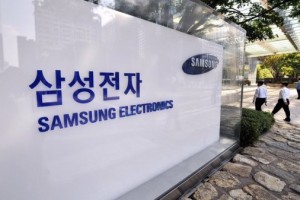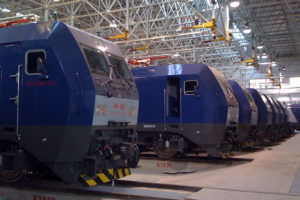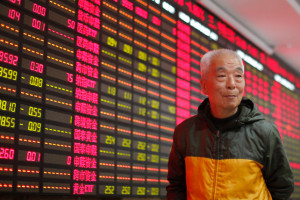Posted on 28 November 2014.
Crediting of companies and households in Eurozone has shrunk again in October according to the latest data from the European Central Bank (ECB). The loans to the private sector fell by 1.1% compared to the same period an year earlier and shrinking slightly less than the 1.2% retreat in September. The ECB also announced that the annual growth of the broad monetary aggregate M3 remained stable at 2.5% in October following a similar extension in September. The trend is generally positive after rising 2% in August, 1.8% in July, 1.6% in June to 1.1% in May and only 0.7% in April.
Loans for business, adjusted for sales and securitization declined by 3 billion EUR, while loans to households increased by 5 billion EUR during the reporting month.
According to analysts despite the recent comments of Mario Draghi ECB is unlikely to take further stimulating action at its meeting on 4 December. Any significant new initiatives seems much more likely to happen in the first months of 2015
Posted in Economy, Finance
Posted on 28 November 2014.
The mixed economic data coming from Japan on the last working day of the week. In October, the third largest economy in the world reported progress in the labor market and a surprising increase in industrial production. However, inflation is still too low in the understanding of the central bank, while household spending decreased considerably. The confusing signals indicate clearly the challenges facing the Japanese Prime Minister Shinzo Abe, who with extensive circumstantial program intends to beat deflation and so hard to revive economic growth. According to official data of the Ministry of Economy, Trade and Industry of Japan the industrial production increased a seasonally adjusted basis in October to 0.2% in expectations for a decline of 0.6%. This is the second consecutive increase, but is much less than in September, when growth was 2.9%.
On an annual basis, output contracted by 1%, while economists’ expectations were much more pessimistic - a decline of 1.7%. In the second and third quarter industrial production shrank as manufacturers of cars and household appliances have shrunk their stocks because of the increase in the consumer tax in the spring.
Meanwhile the unemployment rate declined by 0.1 points to 3.5%. However, household spending fell by 4% yoy. This means that consumption remains weak, although economists had expected an even stronger negative trend. Excluding the effects of the recent increase in consumer tax, consumer prices rose by only 0.9%. The Japanese central bank has set itself the objective of reaching an inflation rate of two percent. The lower price of oil slows down the rate of inflation. Japan suffered for years of deflation - ie falling prices. Because of her customers refrain from buying because they expect recent new depreciation. Firms also leave their investments in the background and appointed fewer employees.
We remind that the Prime Minister Shinzo Abe announced ten days ago that the postponement of the second increase in the sales tax to 18 months. Earlier last week the National Bureau of Statistics in Tokyo announced that the Japanese economy has fallen into recession in the third quarter. Gross domestic product of the country of the rising sun slid 0.4% quarterly and 1.6% yoy in the period from July to September. Quarter earlier Japanese economy shrank by 7.1% per year, thus two consecutive quarters in the red led to the recession.
Shinzo Abe dissolved on Friday the lower house of parliament, paving the way for early elections on 14 December - just two years after being returned to power. With early elections Abe hopes to strengthen the power positions before its crash rating, currently some studies is under 40%, but still stable Japanese standards. According to observers, the early elections will be something like a referendum on the policies pursued by Abe called “Abenomics”. The vote comes at a period in which “Abenomics” does not develop as desired.
Posted in Economy, Finance
Posted on 27 November 2014.
 Tumblr is fastest growing social network, as for the last 6 months increased by 120% its active users. For comparison the largest social network with over 1.35 billion monthly active users - Facebook, grew with only 2%. At the first place for general increase in the number of users stands Pinterest with 57%, while Facebook still ranked ahead by 6%. Instagram, LinkedIn, Twitter, YouTube and Google+ recorded faster growth than Facebook.
Tumblr is fastest growing social network, as for the last 6 months increased by 120% its active users. For comparison the largest social network with over 1.35 billion monthly active users - Facebook, grew with only 2%. At the first place for general increase in the number of users stands Pinterest with 57%, while Facebook still ranked ahead by 6%. Instagram, LinkedIn, Twitter, YouTube and Google+ recorded faster growth than Facebook.
The most popular mobile application remains Facebook, and Snapchat is the fastest growing with its 56% growth. However, it is followed closely by Facebook Messenger and Instagram. This is a sign of how mobile applications on Facebook continue to be the main engine of growth of the company, but also a way to boost development by separating personal messages from the main use of the social network.
Facebook is trying to focus more on smaller applications to maintain the pace of growth, amid downward trend noticeable in the main application. Moreover, according to a study people become tired of Facebook and 50% of consumers in the US and Britain claim to have used it less frequently than before. This statistic shows how people use Facebook more passive now than before.
Among those who have accounts at Facebook, every second argues that actively use social network every month. Facebook and Twitter now earn more from mobile ads than those for desktops. Mobile devices are leading in this respect when it comes to social networking. But overall they have surpassed the use of desktops and laptops.
Although the use of large screens becoming increasingly rare, six out of ten people still use Facebook in a desktop computer. Four in ten people enter the social network via mobile devices. The younger consumers are, the more preferred among them are mobile. In the age group of 16 to 34 year olds, over 50% of people use social networks through mobile devices.
Although Tumblr and Pinterest have the greatest growth in the number of users, they are not as commonly used as Facebook, the study reveals. China continues to dominate the local social networks.
Posted in Business
Posted on 27 November 2014.
 Samsung will repurchase shares for 1.6 billion EUR in widespread large-scale action. The company took such action in intend to support the declining price of its shares. The company will repurchase its own ordinary shares for 1.42 billion EUR and preferred shares for 170 million EUR, announced officially Samsung Electronics. This is the first redemption of shares of more than 7 years, for which purpose the group will spend part of their huge cash reserves, which amounted to the equivalent of 43 billion EUR. The measure aims to support the share price, and part of the cash will be returned to shareholders, said in a statement Wednesday. Since the beginning of the year Samsung’s shares have lost 12% of its value. The analysts and shareholders have long called conglomerate to increase dividends and to take steps to buy back shares.
Samsung will repurchase shares for 1.6 billion EUR in widespread large-scale action. The company took such action in intend to support the declining price of its shares. The company will repurchase its own ordinary shares for 1.42 billion EUR and preferred shares for 170 million EUR, announced officially Samsung Electronics. This is the first redemption of shares of more than 7 years, for which purpose the group will spend part of their huge cash reserves, which amounted to the equivalent of 43 billion EUR. The measure aims to support the share price, and part of the cash will be returned to shareholders, said in a statement Wednesday. Since the beginning of the year Samsung’s shares have lost 12% of its value. The analysts and shareholders have long called conglomerate to increase dividends and to take steps to buy back shares.
The dividends of Samsung are about two times lower compared to the competitors from Intel and Taiwan Semiconductor Manufacturing. Meanwhile it became clear that the conglomerate intends to sell some of their holdings in the chemical and defense industries. Samsung Electronics Co, Samsung C&T Corp and the four subsidiaries will sell its stake in Samsung Techwin Co and Samsung General Chemicals Co for 761 billion won (687.98 million USD) to the South Korean conglomerate Hanwha Group. The sale will be completed in the first half of 2015.
For several months now, however, Samsung’s business does not develop as well. In the Q3 2014 the revenues declined by 60%, which forced the share of the smartphone market worldwide to decrease too. The analysts believe that Samsung will difficult retain its leadership position because of fierce price competition from Chinese technology companies. For the mobile business of the company, which contributes to more than 60% of total revenue, is coming difficult times according to many analysts.
Currently, Samsung is preparing for generational change at the head of the concern, after 72-year-old chairman Lee Kun-Hee was in the hospital because of a heart attack in May. After assuming control based in Suwon, South Korea concern in 1987, Lee made it the largest producer of smartphones, TVs and memory chips in the world, while turned into the richest man in South Korea.
Posted in Business, Finance
Posted on 27 November 2014.
 The Chinese industrial companies profits fell by the largest value in two years, highlighting the need for more flexible monetary conditions amid slowing Asian economy. In October the total profits of Chinese industrial companies declined by 2.1% yoy. For comparison - in September, their profit rose with 0.4%. The October the decline was the largest since August 2012. The Chinese Central Bank, which last week lowered interest rates for the first time in two years, refrain from sales of repurchase agreements today. This happens for the first time since July, thereby loosen monetary policy further.
The Chinese industrial companies profits fell by the largest value in two years, highlighting the need for more flexible monetary conditions amid slowing Asian economy. In October the total profits of Chinese industrial companies declined by 2.1% yoy. For comparison - in September, their profit rose with 0.4%. The October the decline was the largest since August 2012. The Chinese Central Bank, which last week lowered interest rates for the first time in two years, refrain from sales of repurchase agreements today. This happens for the first time since July, thereby loosen monetary policy further.
Amid the housing collapse, overproduction and deflation production China is about to record the slowest annual growth since 1990. The economic slowdown deepened in October, judging by the latest figures published on 13th November 2014. The industrial production rose only by 7.7% yoy. The growth was the second weakest since 2009. Moreover, the investments in fixed assets grew by the slowest pace since 2001, looking at the data for the period from January to October. The retail sales this month also clashed with analysts’ expectations.
Posted in Business, Finance
Posted on 26 November 2014.
The British economy grew with 0.7% in July-September and according to the second official estimate of growth of the Office for National Statistics (ONS). Measured on an annual basis, the UK economy grew by 3% in the third quarter, keeping the same pace to the earlier assessment. The industry grew by 0.2% - unchanged from the previous quarter, as the extraction of oil and gas from the North Sea was the basis for the minimum extension. The industrial production slowed to 0.4% in the previous three months.
In the construction sector, the growth rate also remained unchanged at 0.8% compared with 0.7% in the previous three months. As for the expenditure side of GDP, household consumption was leading again, registering a growth of 0.8% between the two quarters. The expansion is the largest since 2010 and contributed 0.5 percentage points to overall growth.
In a separate report ONS said that business investment fell by 0.7% in the third quarter compared with the second quarter, but rose by 6.3% yoy. The business investment in the third quarter totaled 44.60 billion GBP or 332 million GBP less on a quarterly basis. The last time the indicator was dropped in the second quarter of 2013, when also fell by 0.7%.
The index data services were also published on Wednesday showed a better than expected result. Activity in the services sector grew by 0.5% between August and September, with expectations for growth of 0.4%.
Posted in Economy, Finance
Posted on 26 November 2014.
The hi-tech car rental company Uber close to 40 billion USD market cap, if complete the negotiations of financing with T. Rowe Price Group Inc. The current investors from Fidelity Investments also are set to participate in the financing. Uber will collect at least 1 billion USD if the negotiations complete successfully. The funding is not yet completed and the terms and investors can still change, but now the signs received from the both sides are good. T. Rowe Price Group Inc have considered investing in Uber Technologies before and the deal is not yet confirmed.
The representatives of T. Rowe Price Group Inc and Fidelity declined to comment the rumors. If Uber Technologies get this funding, the assessment of the company market cap will be between 35 billion USD and 40 billion USD, which would be more than double compared to the evaluation of 17 billion USD in June this year. Then the assessment was a record for technology company startup in USA at the stage of direct investment. This place Uber Technologies ahead in the ranking of other elite technology startups like Airbnb and Dropbox, whose value is in the range of eleven digits.
The assessments of such magnitude and spread internationally. In China, the manufacturer of smartphone Xiaomi Corp negotiate for funding, which would make its market capitalization at 40-50 billion USD.
The value of 35-40 billion USD will put San Francisco-based Uber Technologies about 1.5 times biggest capitalization compared to the microblogging service Twitter and approximately the same size as the Giants Salesforce.com, Delta Airlines and Kraft Foods Group. As comparison the company for car rental Hertz Global Holdings has a market capitalization of 11.3 billion USD.
Uber Technologies is attempting to collect more money to invest in its international expansion. The company was found in 2009 and provides service for car rentals from mobile and computer devices. The car rental company is one of the largest in the world using the newest technology innovations and developments. In August this year, the CEO of Uber Travis Kalanick announced that it is considering worldwide expansion. Uber caused considerable controversy with entering new markets. Especially concerned are established taxi companies and companies renting limousines rental. Uber is faced with serious regulatory hurdles. Some drivers service also complained about the structure of commissions in the company.
Posted in Business

Posted on 26 November 2014.
 Most Asian indexes rose on Wednesday after better-than-expected data on US growth. Strengthening of the JPY, however, put pressure on trade in Tokyo. The growth of gross domestic product (GDP) of the largest economy in the world was revised to 3.9% from 3.5% in July-September. However, the news failed to stimulate trade in Wall Street, where were recorded modest changes. The focus of investor sentiment continued to be the situation in the commodity markets. Brent fell below 80 USD per barrel. US crude extended losses after closing at 4-year low on the eve of the meeting of the Organization of Petroleum Exporting Countries (OPEC) on Thursday. The investors consider the prospects for the first reduction in production quotas from 2008.
Most Asian indexes rose on Wednesday after better-than-expected data on US growth. Strengthening of the JPY, however, put pressure on trade in Tokyo. The growth of gross domestic product (GDP) of the largest economy in the world was revised to 3.9% from 3.5% in July-September. However, the news failed to stimulate trade in Wall Street, where were recorded modest changes. The focus of investor sentiment continued to be the situation in the commodity markets. Brent fell below 80 USD per barrel. US crude extended losses after closing at 4-year low on the eve of the meeting of the Organization of Petroleum Exporting Countries (OPEC) on Thursday. The investors consider the prospects for the first reduction in production quotas from 2008.
Financial stocks were the biggest winners in the composition of the Shanghai Composite. Huatei Security gained maximum within one day 10 percent after news that it has received approval for a parallel listing on the stock exchange in Hong Kong. Insurers New China Life Insurance and China Life also added 10%. In Hong Kong Hang Seng climbed up one week, driven by the expansion of 3% of Chow Tai Fook. Capitalization of the company increased despite the fall in first-half profit by 23%.
In Australia, the S&P ASX 200 also rose to a one-week peak and the AUD recovered after hitting a four-year low yesterday. Earlier, deputy governor of the Reserve Bank of Australia Philip Lowe determine the currency as overvalued, which supported the loss. Rio Tinto ended with a growth of almost 2% amid news that Glencore is considering a new takeover offer of the mining giant.
In Japan, the Nikkei 225 ended with a slight decline after fractional session with a view to strengthening of JPY against USD. The pair retreated to the limit of 118 shrink from 7-year high last week. The capitalization of Honda Motor declined by almost 3% after the company admitted that not all reported serious accidents of its cars in USA in the last decade.
Growth recorded producers of aluminum, after a newspaper Nikkei reported that Toyota Motor will use metal instead of steel in their luxury cars. Daiki Aluminum surged by over 10%, while UACJ Corp - almost 9%. Trading in South Korea was quiet for a second day after nearly two-month peak on Monday. The shares of Samsung Techwin rose 15% after news that the company was acquired by Hanwha Chemical. The price of shares of Hanwha does surged by almost 1%.
Posted in Finance, Indexes
Posted on 25 November 2014.
Germany avoided recession in Q3 2014 after the official data for growth of GDP were published and the largest Eurozone economy grew with 0.1%. The result coincided with the preliminary estimates of the analysts and financial experts. Calculated on an annual and non-adjusted basis, the measure showed an increase of 1.2% covering the forecasts, while in Q3 2013 the upturn was 1%. In the structure of GDP, final consumption expenditure of households grew by 0.7% in the period from July to September. Exports grew by 1.9% compared with the second quarter after adjusting for seasonal adjustments. Imports even increased by 1.7% and the gross fixed capital formation decreased in the third quarter.
The forecasts of the government and ECB are the German economy to grow by only 1.2% this year, down from the previous forecast expansion of 1.8%. The forecast for 2015 is about a expansion of 1.3 per cent against expectations so far growth of 2%. The European Commission also sharply lowered its forecast for growth in the country of 2% to just 1.1% next year. Seen autumn economic forecast Brussels was published on 4 November.
Posted in Economy, Finance
Posted on 20 November 2014.
The Chinese manufacturing slowed this month, sending new signals possible overall delay of the second force in the world economy. The index fell to 50 deliveries in October - a point that divides contraction of economic activity from the extension. Level is the lowest in the last six months. Last month, final data showed a level of 50.4 points.
The weak price pressures and low capacity utilization are due to insufficient demand in the economy. Furthermore, we will continue to see uncertainty in the months of the real estate market and for exports, commented analysts.
Fighting China this year to meet its growth prompted several changes in government policy, especially in the real estate sector, where the slowdown in housing demand becomes more obvious. In view of the reluctance of politicians to implement a comprehensive package of incentives or major reforms currently China likely to meet its target of growth of 7.5% for the whole 2014 remains just possible.
According to the latest data, Chinese economy grew by only 7.3% yoy in the third quarter - the slowest pace in five years. Quarter earlier expansion was 7.5% and in the first three months of the year - 7.4%. This means that it takes considerable expansion in the period October-December, so that the target of 7.5% can be reached. The economists believe that this scenario is unlikely without further stimulus, especially considering the performance of the real estate sector.
Figures released Tuesday showed that prices of new homes in China fell in 69 of the 70 largest cities in the country last month. The number is the same as a month earlier and emphasizes the impact of limited demand and oversupply after years of global construction boom.
Posted in Economy, Finance








